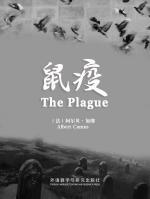The plague
戴耳机的木头
"In the sweltering skies, the roar of plague beat the
rhythm of the footsteps of millions of men moving painfully." The
plague had taken away hope, passion, and feeling, leaving the city with
a sultry weather and a gloomy atmosphere. The doctor and his friends had
been working day and night at their posts, and exhaustion had swept over
them. "Now every day is the Day of the dead, a sad fact." In
December the cold did not drive away the pestilence, and the epidemic
spread again. "The whole city lived a hopeless life." Rats
have reappeared in people's lives, but the data suggest that the
epidemic has abated. On the night of January 25, the epidemic was
declared over. All the houses were lit and everyone was happy. People
were finally liberated and escaped from the plague. On a fine February
morning, the gates opened. The exilic mood of the people of Oran
vanished in jubilation. So that's the end of the plague narrative. Dr.
Rieu spoke as a witness, which is why the author has been able to
describe everyone's psychology in such a vivid and vivid way. In
her review of Camus' The Plague, Hannah Arendt said, "There is a
Camus-like heroism in which ordinary people do extraordinary things
because of their simple kindness." Yes, in 1947, ordinary heroes
like Dr. Rieu, Lambert and Tharu fought against the plague. Today, we
have zhong Nanshan, a powerful "backer". There are countless
volunteer to fight the epidemic in the first line of white angels; There
are thousands of Chinese who give in silence. There are no heroes who
fall from the sky, only mortals who stand up! Believe that the bones
buried in the winter, will open manye spring cherry.




 京公网安备 11010802032529号
京公网安备 11010802032529号